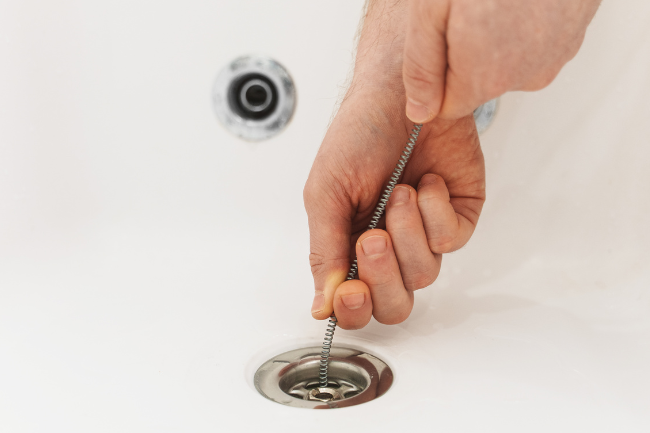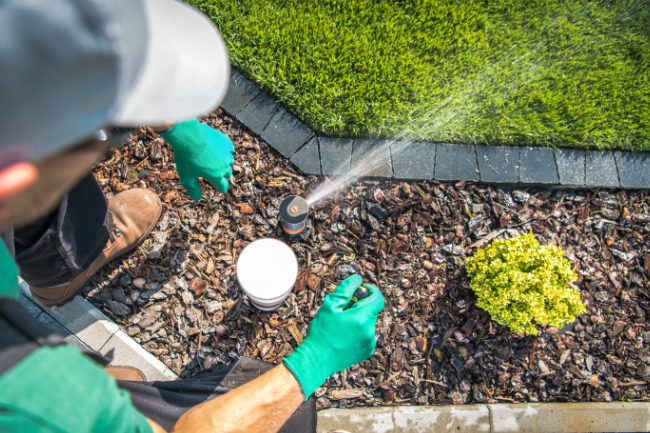4 Common Drain Cleaning Mistakes for Homeowners
Posted by William Heinselman on

Drain cleaning is one of those common household tasks; it's ignored all too often, until we can't ignore it anymore. In fact, most of us probably don't think about our plumbing until there's an issue. Poor drain maintenance can lead to foul odors, nasty clogs, and even damaged pipes in your home.
Proper drain cleaning can spare you from some nasty & expensive plumbing problems later on. However, all too many homeowners make a few basic mistakes that end up costing them hundreds of dollars or more later on.
4 Common Drain Cleaning Mistakes to Avoid
Knowing what these common drain cleaning mistakes are can help you avoid making them with your own plumbing system.
Mistake #1: Over-Using Chemical Drain Cleaners
Chemical drain cleaners often advertise they’ll help you save money on a plumbing call, but in many cases, they are the cause of an expensive repair. While it is true that a bottle of drain cleaner can eat away at a blockage in your drain or toilet, it’s important to keep in mind how they do that.
These cleaners use harsh chemical reactions to dissolve blockages of hair and other non-water soluble materials. The problem is that if these chemicals are used too often or in the wrong concentration, they can eat away at your drain pipes as well as the clog you were hoping to clear.
This leads to broken pipes, leaks, and other problems that can be much worse than just a clogged pipe.
Rather than relying on chemical drain cleaning products, it’s better to use a drain snake (a.k.a. a drain auger) to break up the clog, or to prevent the clog from occurring in the first place. A mixture of hot water, baking soda, and vinegar may also prove effective at helping to clear a clog while not being as harmful to your drain pipes.
Mistake #2: Sticking More Things Down the Pipe
In some cases, it might be tempting to create a DIY drain clearing tool by taking a coat hanger and straightening it out or using a broom handle. However, this can cause more problems than it solves if the makeshift tool is used the wrong way.
Simply pushing against the clog may not break it up—you may just end up pushing the clog deeper down the drain and make it even more difficult to fix. The coat hanger solution might work IF you catch a portion of the clog with the hanger’s hook and pull it out, but this will require the clog to be relatively close to the drain access.
Also, when using a broom handle or other inflexible makeshift pole to ram a clog clear, you risk simply breaking the pipe. Using purpose-built tools to clear clogs and following their use instructions will be safer and more effective than using a jury-rigged solution.
If you cannot clear a clog on your own using a drain snake or plunger, please consider calling in professional help before the drain floods your home.
Mistake #3: Flushing the Wrong Things Down the Pipe

One of the best ways to keep your drain pipes in good working condition is to avoid putting the wrong things down the drain in the first place.
However, all too many homeowners put some or all of the following things down the drain without a second thought:
- Hair: From men’s hair stubble in the bathroom sink, to the long strands of hair that naturally fall out in the shower, hair is a massive issue for drains all through Sacramento. Hair doesn’t dissolve or biodegrade easily, letting it form the core of many a clog and fatberg. Consider adding hair traps/covers to bathroom sink and tub fixtures.
- “Flushable” Wipes: A "fatberg" is a huge accumulation of solid waste, primarily composed of congealed cooking fats, disposable wipes, and various sanitary products that are improperly disposed of down toilets. These obstructions and fatbergs significantly exacerbate already hazardous and challenging work conditions. In 2018, the New York City Department of Environmental Protection had to remove over 2,000 fatbergs, noting that "flushable" wipes constitute 90% of these blockages.
- Cooking Grease. Here’s a common clog cause killing kitchen sinks. Pouring grease and oil down the sink can allow it to adhere to the walls of your pipes, restricting flow and making it easier to clog.
- Animal Fat, Cartilage, and Bone: The garbage disposal might be able to shred some bits of food, but it’s best to avoid pushing leftover ribs, bones, and meat down the sink. Bones can damage the disposal’s blades while cartilage, fibrous animal tissue and fat contribute to solid, difficult-to-clear clogs.
- Plastic Wrappers and Paper Products: You should never put something as solid as a plastic wrapper down the drain. Stretch wrap film can easily create a clog that will require professional attention (and partial pipe disassembly) to clear. Even paper towels and other paper products (like the aforementioned “flushable” wipes) can remain solid enough in a pipe to become the core of a clog.
Mistake #4: Never Inspecting the Drain
Early detection is a must for preventing the worst sewer & drain problems. The problem is that kitchen & bathroom drain fixtures are often an afterthought in home maintenance. Most people don’t even think to check their drains unless there’s already a clog or particularly foul odor.
Set aside a date each month to run a quick set of checks on your home’s drains, like the first Saturday of the month. Inspect each drain in the house—checking how quickly water drains, if there’s an odor, and seeing if the pipes under sinks are discolored or corroded.
Best Practices for DIY Drain Cleaning
When it comes to tackling clogged drains on your own, there are a few best practices to keep in mind to ensure the safety and effectiveness of your DIY drain cleaning. Here are some important tips to follow:
- Use natural or homemade cleaners first before resorting to harsh chemicals.
- Always wear gloves and protective eyewear to protect yourself from any potential hazards.
- Start with simple methods such as using a plunger or drain snake before trying more complicated techniques.
- Be cautious when using chemical cleaners and follow the instructions carefully.
- Avoid pouring grease, oils, and large food particles down the drain to prevent future clogs.
- Regularly maintain your drains by flushing them with hot water and vinegar to prevent buildup.
By following these best practices, you can safely and effectively unclog your drains without having to call a professional plumber. However, if the clog persists or becomes too difficult to handle, it's always best to seek help from a plumbing expert.
Avoid Common Drain Cleaning Mistakes With the Help of a Professional Plumber
Once every year, have a full inspection done by an experienced professional. A professional will have the tools and know-how to spot issues that you may not be able to detect on your own—particularly in areas where visual inspection of your pipes would be difficult or impossible to do. Contact Express Sewer & Drain for more information on residential plumbing inspections! 
Topics: Home Plumbing, Drain Cleaning and Repair






